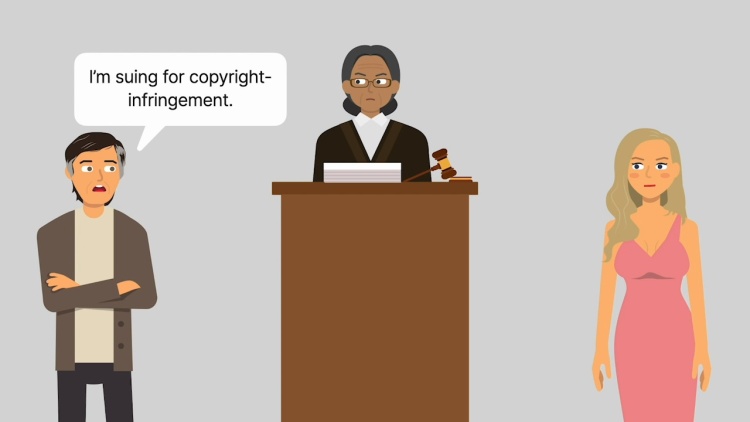Swirsky v. Carey
United States Court of Appeals for the Ninth Circuit
376 F.3d 841 (2004)

- Written by Cynthia (Anderson) Beeler, JD
Facts
In 1997, Seth Swirsky (plaintiff) and Warryn Campbell (plaintiff) composed the song “One of Those Love Songs” (One). The song was recorded by musical group Xscape and released in May 1998. In 1999, Mariah Carey, James Harris III, and Terry Lewis (defendants) composed the song “Thank God I Found You” (Thank God). The defendants recorded Thank God, and it was released in November 1999. Both One and Thank God were R&B songs. The plaintiffs sued the defendants for copyright infringement of the chorus only. The plaintiffs presented expert testimony from Dr. Robert Walser, who was chair of the Musicology Department at the University of California at Los Angeles. Walser concluded that the choruses in both songs were substantially similar based on melodies, bass lines, chord changes, tempo, and style. Walser presented a detailed, technical analysis broken down by measure. Walser also acknowledged that one measure in One was more similar to another, older song than it was to Thank God. The defendants moved for summary judgment, arguing that the plaintiffs failed to present an issue of triable fact under the ninth circuit’s extrinsic test for substantial similarity. The district court granted the defendants’ motion for summary judgment, and the plaintiffs appealed.
Rule of Law
Issue
Holding and Reasoning (Canby, J.)
What to do next…
Here's why 911,000 law students have relied on our case briefs:
- Written by law professors and practitioners, not other law students. 47,100 briefs, keyed to 997 casebooks. Top-notch customer support.
- The right amount of information, includes the facts, issues, rule of law, holding and reasoning, and any concurrences and dissents.
- Access in your classes, works on your mobile and tablet. Massive library of related video lessons and high quality multiple-choice questions.
- Easy to use, uniform format for every case brief. Written in plain English, not in legalese. Our briefs summarize and simplify; they don’t just repeat the court’s language.





